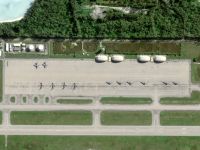The Egyptian government has announced plans to build one million homes for its poor, Reuters reports.
With a population that is expected to surpass 120 million by 2050, the $20 billion new social housing project should help ease the crunch for the millions living in slums and unlicensed buildings in the capital. The sprawl of makeshift housing, which has increased since the 2011 uprising, has become known as the City of the Dead.
Housing Minister Moustafa Madbouli told Reuters that Egypt some 500,000-600,000 new homes needed to be built annually in order to keep pace with demand.
The ambitious project aims to construct 200,000 homes a year over a five year period, meeting over half the yearly demand for affordable housing. According to Madbouli, the scheme is being financed via land sales to developers building more upmarket housing.
"This is totally being implemented by the Egyptian government and the ministry of housing with a total investment that exceeds 150 billion Egyptian pounds ($19.16 billion)," he told Reuters on the sidelines of the Egypt Mega Projects conference.
"We are making use of the projects we are offering to the private sector to finance and cross-subsidize the social housing program."
In addition to the construction of one million homes, the Housing Ministry is working to upgrade informal settlements in urban areas, but it is a mammoth task. As Egypt's population grows, the government must find solutions for the poorly lit, poorly ventilated rows of unlicensed red brick buildings that have sprouted since the overthrow of President Hosni Mubarak five years ago.
"(We are) upgrading slums and unsafe areas. We are talking here about 248 areas ... 150,000 families," Madbouli said.
In March 2014, a pillar of President Abdel Fattah al-Sisi's campaign was the construction of a million homes for middle-income Egyptians by 2020 via a $35-billion joint venture with Dubai-based Arabtec. Arabtec's latest forecast is for the construction of just 13,000 units in the first phase, according to Reuters.
"The company had continuous change of its board and its strategy and its policy. They limited their ambitious program," Madbouly said. "It's not the project we were expecting."
Nevertheless, enthusiasm for Arab investment in the the country has not been dampened, with private developers meeting the need of middle and higher-income Egyptians who are settling in the new suburbs around Cairo.








